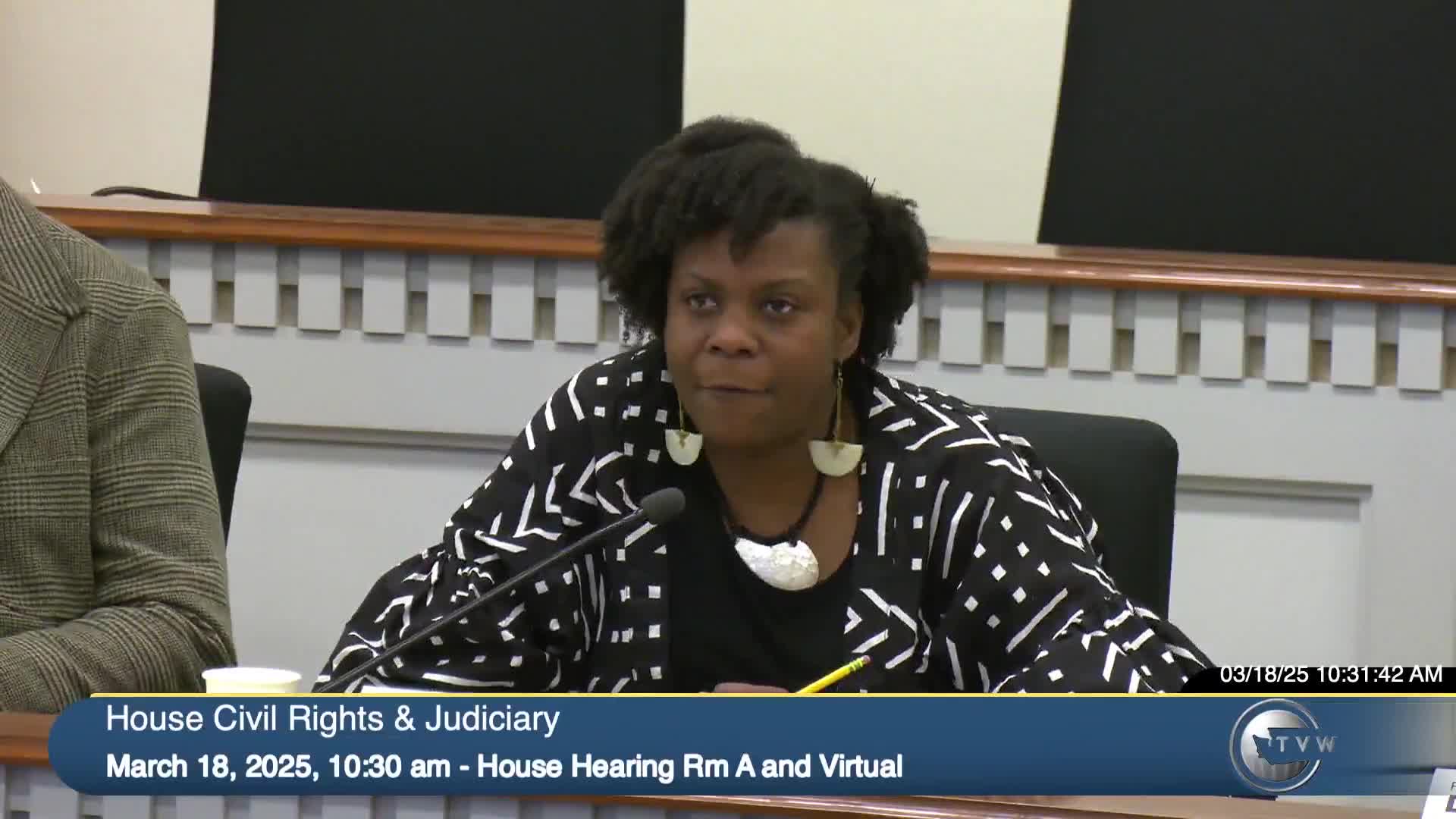Article not found
This article is no longer available. But don't worry—we've gathered other articles that discuss the same topic.
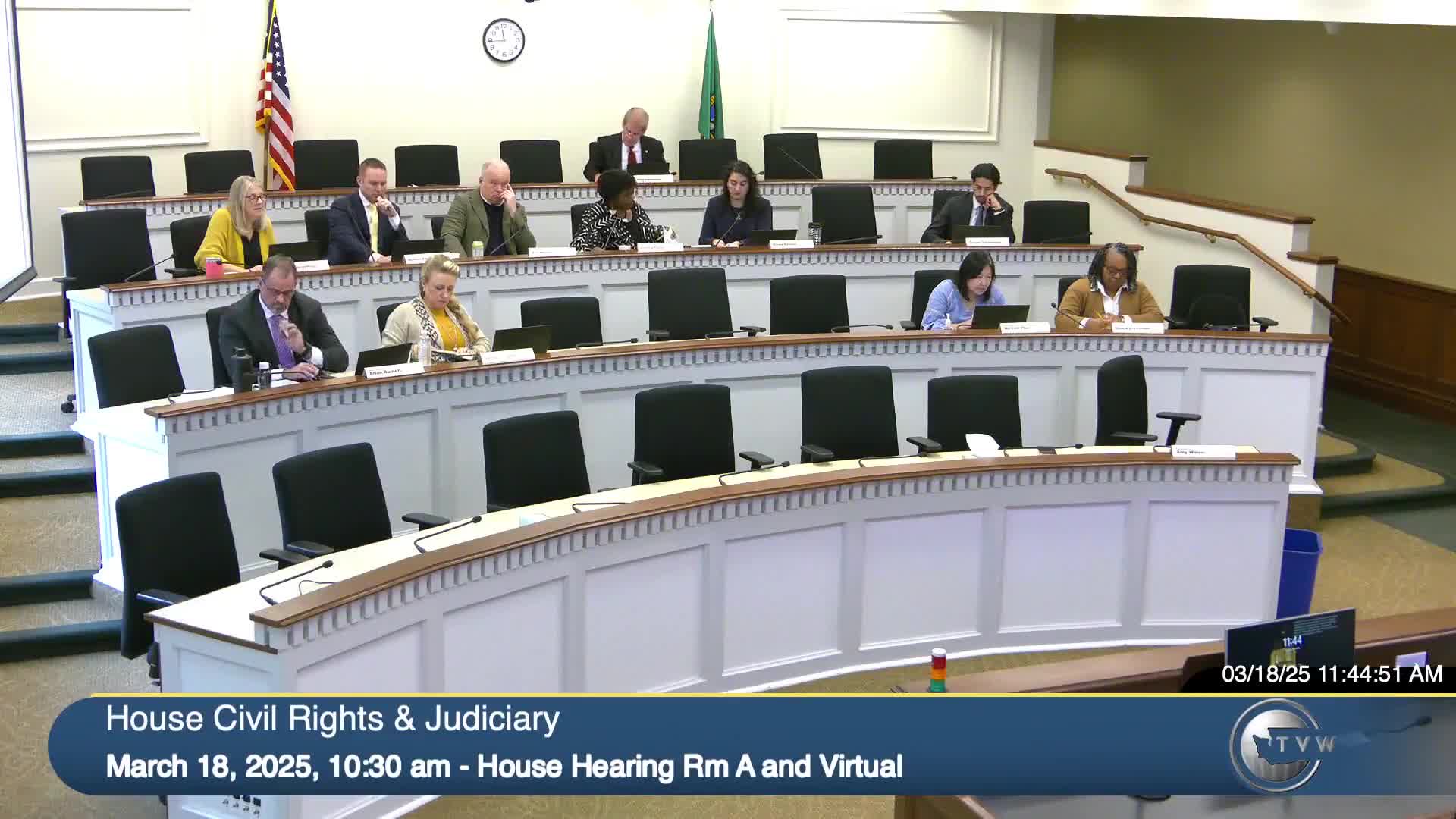
Committee hears broad bill to restrict weapons at parks, public buildings and county fairs; advocates split
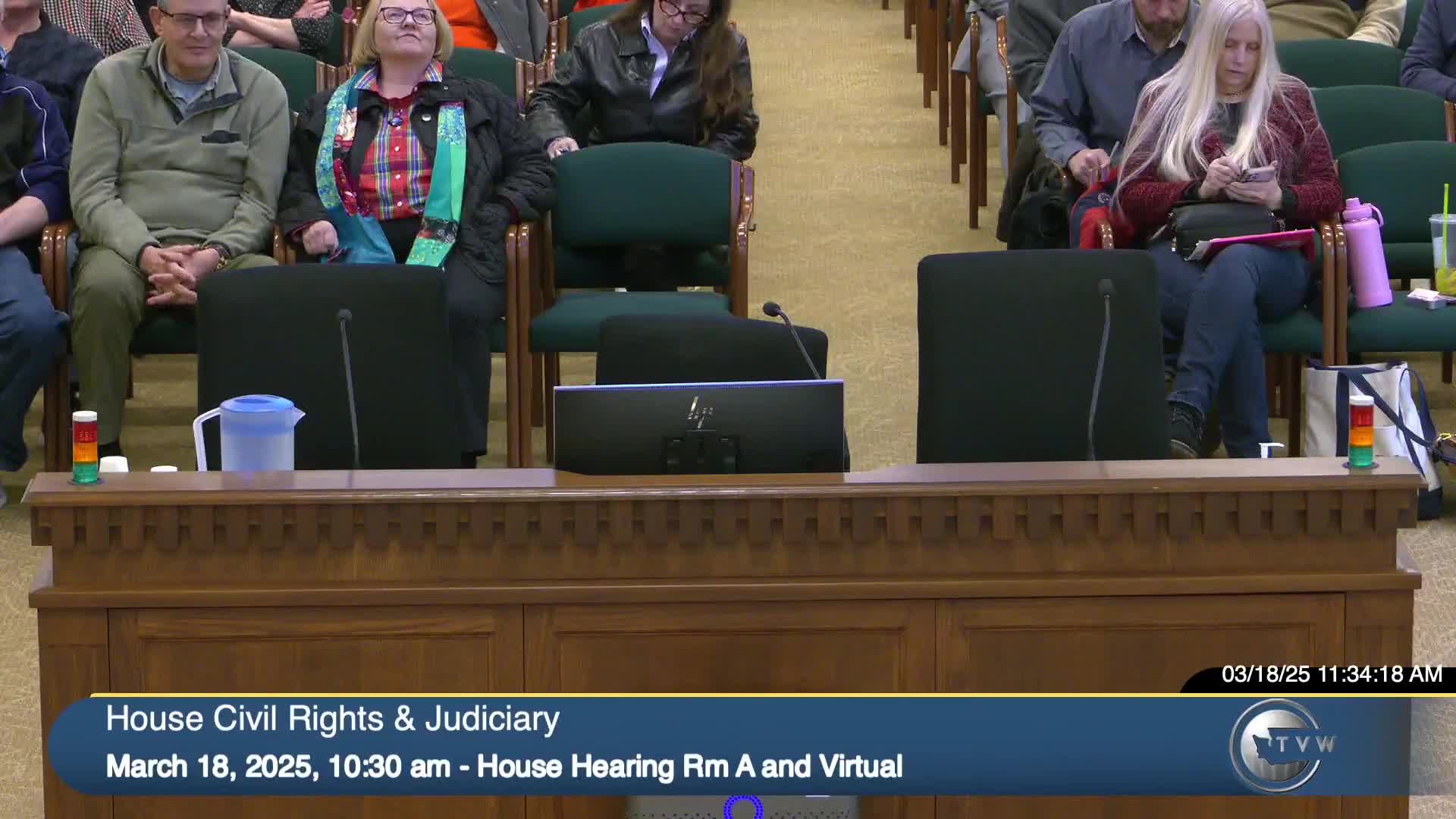
Sponsor frames repurchase right for property taken by school districts as racial and economic‑justice fix
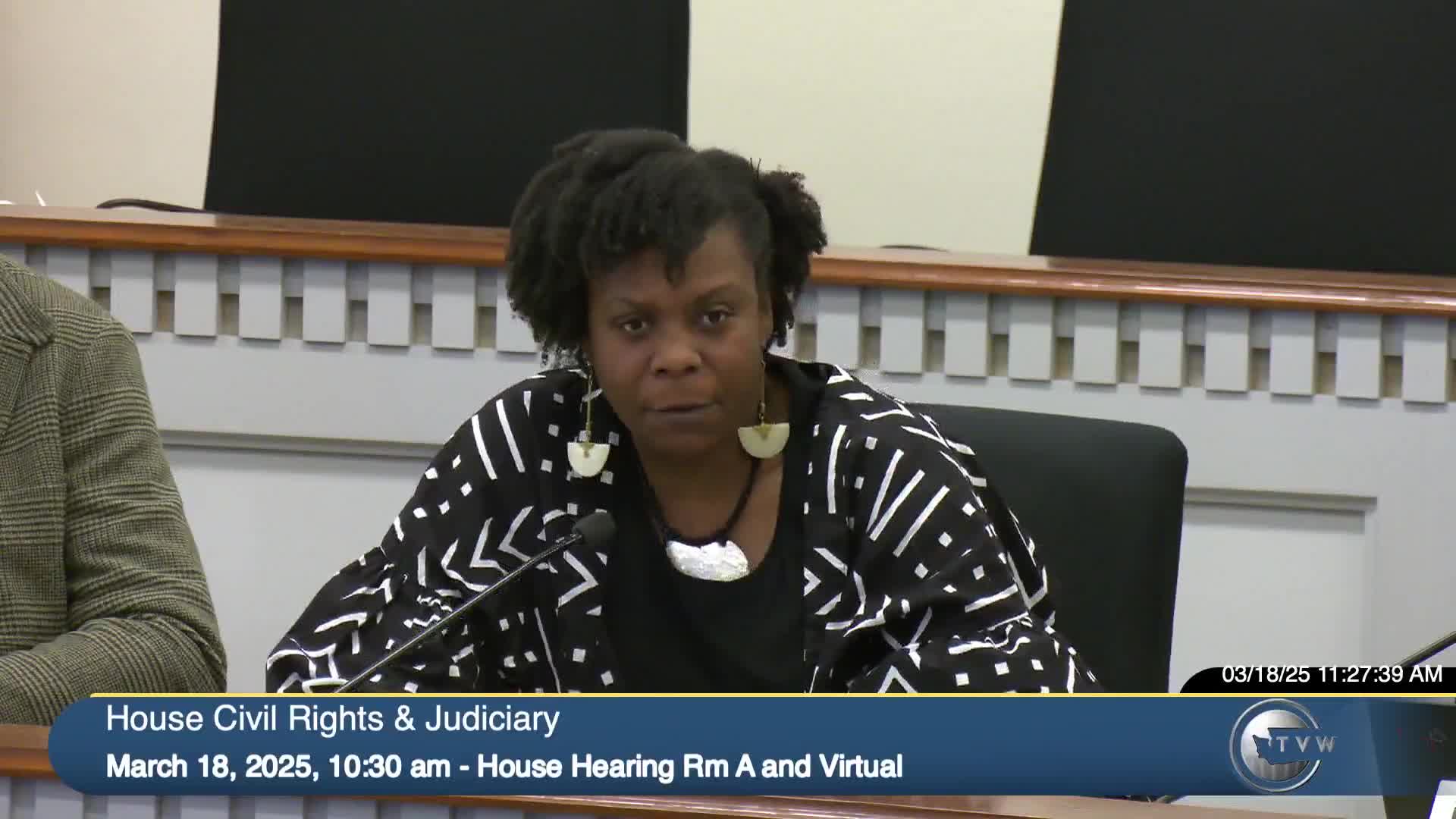
Committee hears Uniform Custodial Trusts Act proposal to simplify trusts for individuals and families
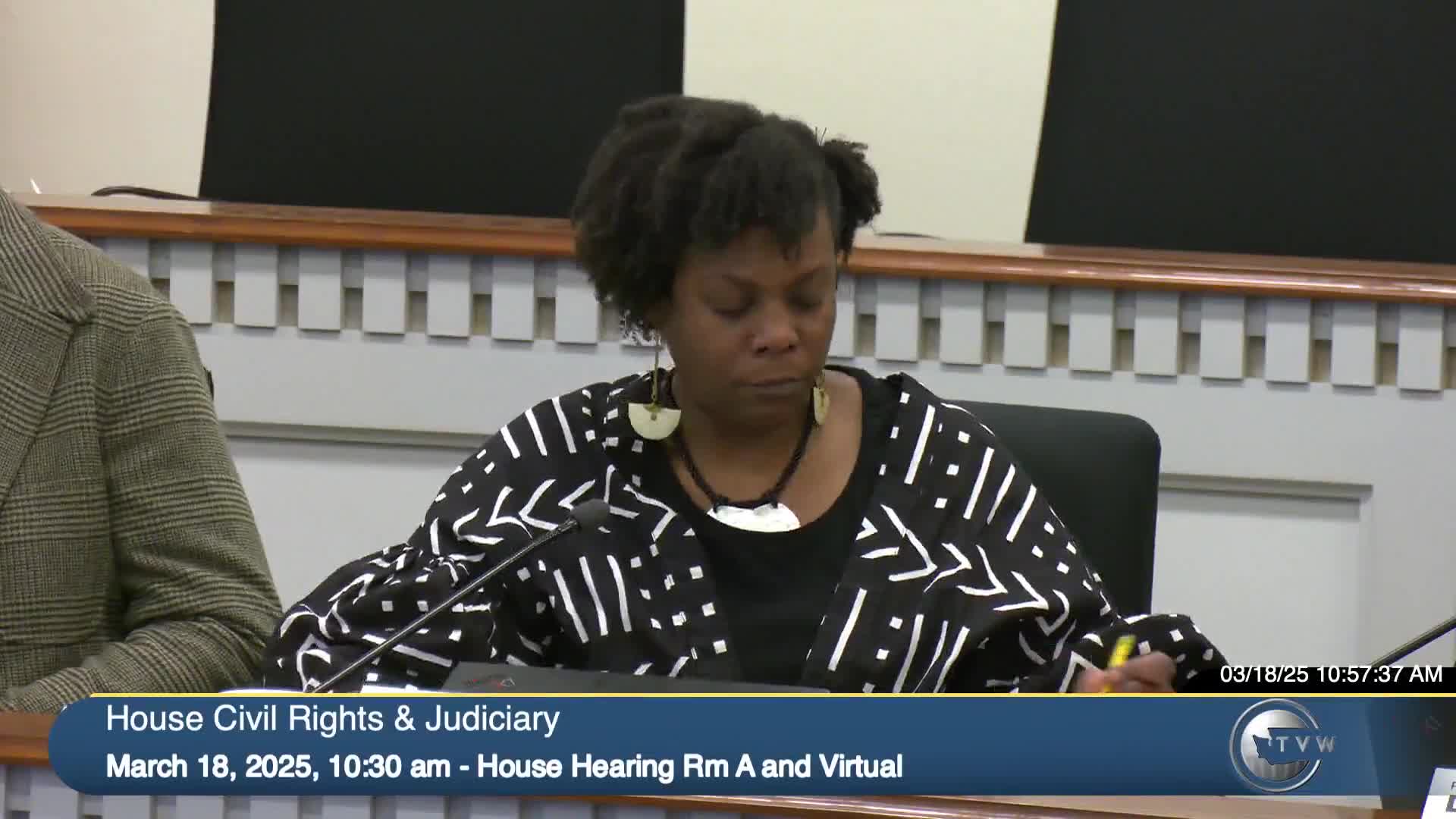
Panel backs technical fixes to protection‑order law and new penalty for undetectable firearms; some groups raise due‑process concerns
